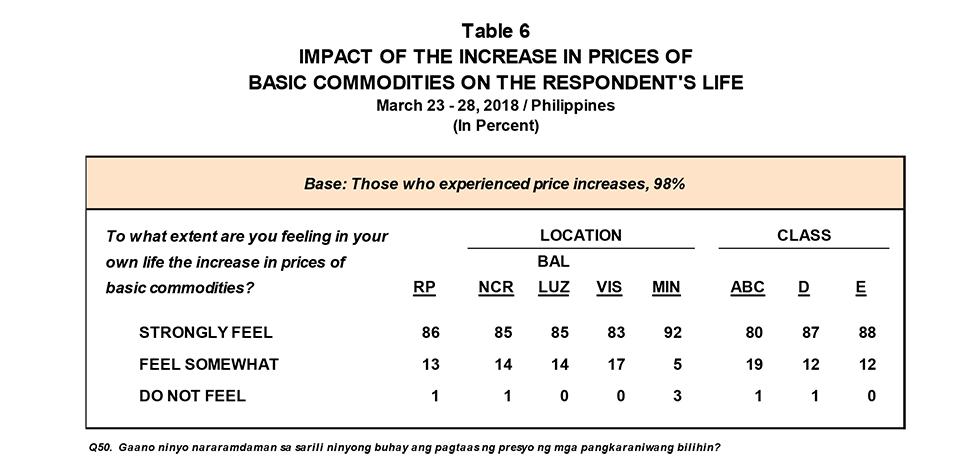Most Filipinos ‘strongly affected’ by price increase in basic goods
Most Filipinos say they were strongly affected by an increase in prices of basic commodities early this 2018, a Pulse Asia survey showed.
The survey, conducted from March 23 to 28 using face-to-face interviews, showed 86 percent of Filipinos reported that they “strongly” felt the impact of price hikes, reflecting the prevailing sentiment at that time among social class groups and across all regions in the Philippines.

Thirteen percent said they were somewhat affected by the price increase, while only 1 percent said did not feel the effects.
The survey noted that 98 percent of Filipinos noticed that the commodities they usually buy have gone up since January 2018.
Price increases were noticeable in food, electricity, transportation, medicine, and water.
The nationwide survey covered a sample of 1,200 representative adults, aged 18 years old and above. It has a ±3 percent error margin at the 95 percent confidence level.
Subnational estimates for each of the geographic areas covered in the survey—Metro Manila, the rest of Luzon, Visayas and Mindanao—have a ± 6 percent error margin, also at 95 percent confidence level.
In light of the tax reform law, food prices increased, causing inflation to accelerate to 3.8 percent on average during the first quarter of 2018, according to the Bangko Sentral ng Pilipinas.
This compares with 3.0 percent on average recorded in the fourth quarter of 2017 and 3.2 percent in the first quarter of last year.
Data released by the Philippine Statistics Authority (PSA) showed that inflation continued to accelerate to its fastest pace in over three years.
February’s inflation rate clocked in at 4.5 percent, compared with 4.0 percent in January, and 2.7 percent recorded in December 2017. It was the fastest in over three years, since inflation came in at 4.9 percent in August 2014. —
—Jessica Bartolome/VDS, GMA News




